‘Embrace Equity’: International Women’s Day 2023
For International Women’s Day 2023, ARENA asked women working in renewables to reflect on their roles and their ideas on how the industry can ‘Embrace Equity”.
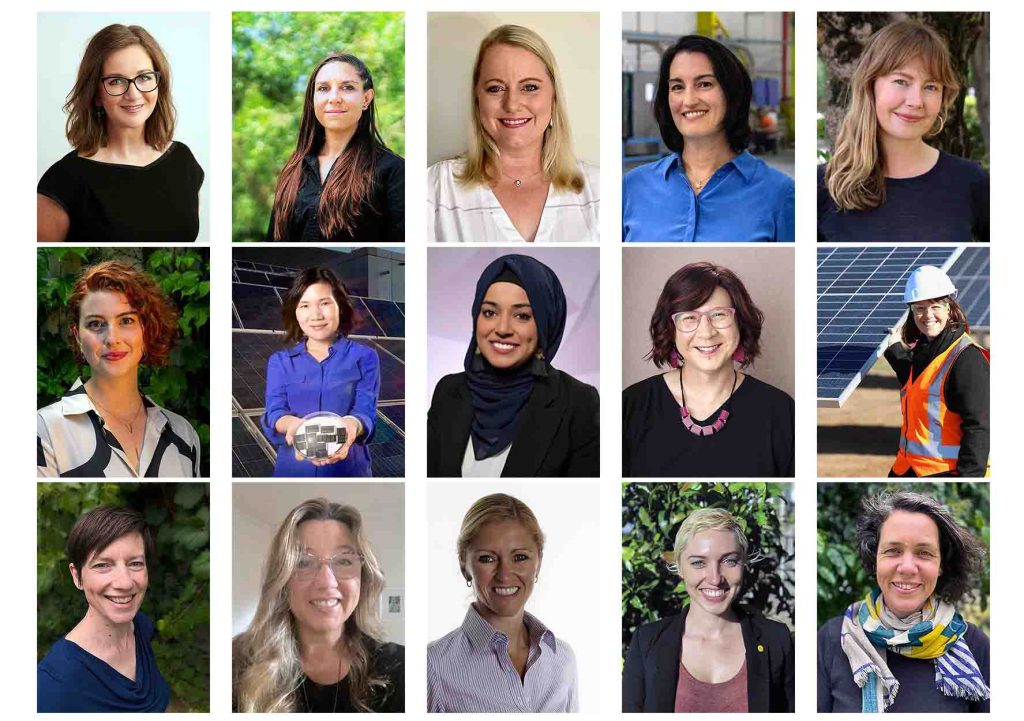
For International Women’s Day 2023, we asked women working in renewables to reflect on their roles and their ideas on how the industry can ‘Embrace Equity”.
Click on the links below to view individual stories or scroll down.
- CLARE SAVAGE: Chair, Australian Energy Regulator
- RUBY HEARD: Founding Director, Alinga Energy
- PROFESSOR XIAOJING HAO: UNSW Australian Centre for Advanced Photovoltaics
- ANNA STARRETT: CFO, MGA Thermal
- NADA KALAM: Associate Director – Asset Management, Lighthouse Infrastructure
- GRACE YOUNG: Chief Innovation Officer, Wattwatchers
- HEATHER BONE: Director of ESG, Team Global Express
- AMY PHILBROOK: Strategy Lead for Clean Fuels, ATCO
- BRIDGETTE CARTER: Project Director – Advanced Steel Manufacturing Precinct (ASMaP), BlueScope Steel
- ANNA BOIN: Product manager, Beyond Zero Emissions (BZE)
- ALISON CIESLA: Scientia lecturer at the School of Photovoltaic and Renewable Energy Engineering at UNSW
- JANE SEWELL: Interim head of research, Beyond Zero Emissions
- ARDEN JARRETT: Marketing Manager – Brand, MGA Thermal
- LILY DEMPSTER: CEO and Founder, One Small Step
- ANGELA RILEY: Wholesale Markets Manager, Goldwind Australia
- JACKIE McKEON: Program Director, Business Renewable Centre Australia (BRC-A)
CLARE SAVAGE
Chair, Australian Energy Regulator
“I would like to see a much greater focus on cultural and linguistic diversity”
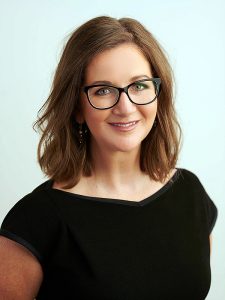 Where do you work and what do you do?
Where do you work and what do you do?
I am the Chair of the Australian Energy Regulator. The question of what I “do” is always hard to answer. The AER Board is not a traditional non-executive governance Board. Our roles are more similar to that of a Commission. The jobs are full-time and we are responsible for all the statutory decision making of the AER along with setting the strategic direction for the work of the organisation (among other things). The AER does so much to promote the long-term interests of energy consumers and I am fortunate enough to be a part of that.
How did you get into the job?
I’ve been working in all parts of the energy system for 20 years now. I have worked in both the private and public sectors in my career but in 2019 I was attracted to the tangible nature of regulation and the positive impact this can have for energy consumers. I was interviewed and subsequently recommended by an Independent Panel for the role of Chair. Appointment to the role of Chair of the AER requires the unanimous support of Energy Ministers and subsequent sign off by the Commonwealth Cabinet and Governor-General. So, it took a while.
Why is renewable energy important to your work?
Energy is, and will continue to be, one of the fastest transitioning sectors in the Australian economy and will underpin our transition to net zero emissions. Renewable energy is at the heart of this.
Tell us about the challenges you have faced along the way
When I was in the early parts of my career there just weren’t many women around me. I worked in the Federal Treasury which was, at the time, quite male dominated and I then went to work at the energy industry association where all but one of the member CEOs were men. At Energy Australia I was the only woman on an eight-person executive team. Most of my early career I was managed and mentored by men. I think it took me quite some time to appreciate what impact that had on my personal style. I’ve also had to come to terms with the fact that, regardless of our increasing focus on gender equality, people still seem to have different expectations of how men and women will engage.
How do you think the energy sector is positioned to realise the IWD’s theme for the year: “Embrace equity”? What progress would you like to see?
I personally would like to see a much greater focus on cultural and linguistic diversity within the more senior realms of the energy industry. The intersection of gender and cultural and linguistic diversity is particularly important to me.
What do you wish you were told when you first started out in your career?
You can’t see around every corner so keep learning and keep open minded. The path is never straight and it is sometimes very difficult but don’t despair. Windows open when you least expect it. Be ready. Actually, someone did tell me the last bit and it made all the difference.
RUBY HEARD
Founding Director, Alinga Energy
“The clean energy transition is centred on equity”
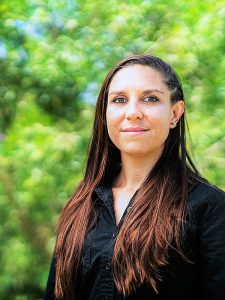 Where do you work and what do you do?
Where do you work and what do you do?
Alinga Energy Consulting is a small firm that delivers feasibility studies and design of renewable energy systems and microgrids. We focus on off-grid applications, particularly remote Indigenous community in Australia and PNG. My Aboriginal heritage drives me to focus on equitable outcomes for Indigenous communities.
How did you get into the job?
I’ve wanted to work in renewable energy since I was 16. After university I worked with Arup in Melbourne. In 2015 I moved to Arup’s San Francisco office and specialised in complex solar arrays and microgrids, working predominantly with Google. I left Arup in 2018 to volunteer with Engineers Without Borders in Ethiopia, training refugees to design and install solar mini-grids for health centres. After that, I knew I had to come home to Australia and dedicate myself to improving energy delivery in Indigenous communities.
Why renewable energy?
My 16-year-old-self first thought of recycling as an industry I could explore. But my next thoughts were about the huge amounts of electricity it must take to run a recycling plant. So, I thought I’d better start with that.
Tell us about the challenges you have faced along the way
I’ve often struggled with presenting the most energy efficient, clean energy technologies to clients only to have most of the initiatives value-managed out of the design at a later stage. I’ve struggled with the idea of saving companies vast amounts of money on energy bills then seeing them waste their new, free energy in indulgent ways. And I’ve struggled with the lack of common sense in some of our energy regulations which has held back innovation and value streams for users.
How do you think the renewable energy sector is positioned to realise the IWD’s theme for the year: “Embrace equity” What progress would you like to see?
The renewable energy sector holds amazing opportunities for women. Over the past year I have been delighted to see a huge number of women entering the industry. I’ve seen several all-women expert panels and an impressive number of female CEOs. It’s no surprise to me. The clean energy transition is centred on equity, giving attention to our marginalised peoples (“a just transition”).
What do you wish you were told when you first started out in your career?
I wish I’d had healthier role-models when I first started. I have picked up so many bad habits around work-life balance. I was told that one of my graduate colleagues was really getting 50% more experience because she was working so much unpaid overtime. Now we’re much more aware of burnout. A career is a marathon, not a sprint. Saving the world is a marathon, not a sprint.
PROFESSOR XIAOJING HAO
UNSW Australian Centre for Advanced Photovoltaics
“As a woman, I feel like this is a really great time to be a solar engineer”
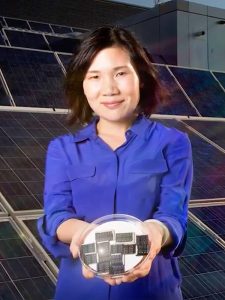 Where do you work and what do you do?
Where do you work and what do you do?
I’m a professor at UNSW at the Australian Centre for Advanced Photovoltaics. My work there looks at the kinds of materials that can be used to make solar cells.
How did you get into the job?
I completed my PhD at SPREE UNSW in 2010. I love research because I am a curious seeker of the truth. I wanted to be an innovator and also a detective – so I became a researcher in solar PV to combine the two. I love working in an area I really enjoy and that also has benefit to other people.
Why renewable energy?
Climate change is the biggest challenge that has ever faced our species. As a scientist, it feels like my skills are best put to use in addressing how we can fix this as soon as we can.
Tell us about the challenges you have faced along the way
I think that moving to a new country is always challenging for anyone who chooses to do that, even though it’s also incredibly exciting — there’s a big adjustment to make in learning a language and getting familiar with a new culture, so that was one challenge! As a woman, I feel like this is a really great time to be a solar engineer, there are so many of us working in the field now, it feels like we’re moving towards a time where there could be even more women than men working together.
What do you wish you’d been told when you first started out in your career?
Having mentor(s). The mentor can be invaluable in your career. They can offer guidance, support, and advice based on their own experiences. Also, don’t forget to have fun! Your career should be fulfilling and enjoyable, so make sure to find joy in what you do.
ANNA STARRETT
CFO, MGA Thermal
“This young sector is all about change, innovation and growth”
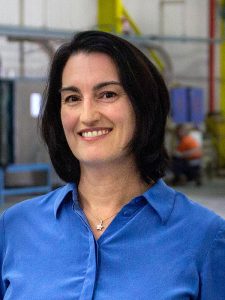 Where do you work and what do you do?
Where do you work and what do you do?
I work at MGA thermal as the CFO. As a green tech start up, the role is very broad, setting up strong foundations internally for growth, and working with investors and external stakeholders on funding.
How did you get into the job?
I had a solid background in Chartered Accounting firms, before moving into commercial finance roles in industry. That transitioned to operations and general management. I’ve now come back to finance but in an organisation where finance has a real seat at the table.
Why renewable energy?
This role came along at just the right time in my career. Most of my roles have been in mining and industry. I was looking for something with strategic purpose and it’s hard to get more strategic purpose than working in a green tech startup organisation – an industry which aligns with developing community values and priorities.
Tell us about the challenges you have faced along the way
Traditional industrial organisations are fairly hierarchical, and of course male dominated. Pre MGA, there were circumstances where I believe I was included in initiatives as a token to diversity. The inclusion, however, provided an opportunity to participate. My approach was to seize that opportunity – ignore the tokenism and enjoy the win
How do you think the renewable energy sector is positioned to realise the IWD’s theme for the year: “Embrace equity” What progress would you like to see?
This young sector is all about change, innovation and growth – activities and concepts that align perfectly with the IWD Theme. In many ways, the sector has one of the best opportunities to realise the Embrace Equity theme. I’d like to see progress in developing and reporting metrics that are genuine indicators of diversity, equity and inclusion and collection of valid, verifiable data.
What do you wish you were told when you first started out in your career?
So many things……Every experience you have – good, bad, boring, exciting – adds value later on. Start a one-page logbook what you have achieved, where you want wrong, and what you have learnt, and update this regularly. Find a mentor and actively seek advice.
NADA KALAM
Associate Director – Asset Management, Lighthouse Infrastructure
“As an industry we have a lot more to do”
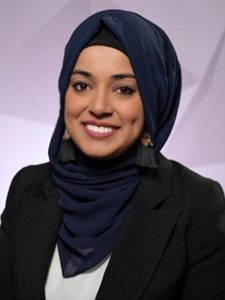 Where do you work and what do you do?
Where do you work and what do you do?
I work with a sustainable infrastructure fund manager leading the day-to-day asset management activities for the business. Our infrastructure asset portfolio currently consists of utility-scale solar farms, key worker accommodation, and Specialist Disability Accommodation (SDA).
How did you get into the job?
I was headhunted from my last job (Manager of Engineering and Asset Management – KPMG) through LinkedIn. I had never considered a career with a funds manager before, having spent my whole career as an energy systems engineer, so it felt like quite the leap of faith.
Why renewable energy?
I started my career with the Australian Energy Market Operator (energy forecasting and transmission services) and WorleyParsons (oil and gas) – both roles gave me an appreciation and foundation for the complexity ahead of us as a nation to meet our emission targets and energy transition aspirations. I work in, with, and amongst the renewable energy industry because it is the right thing to do. Though, we have a LONG road ahead.
Tell us about the challenges you have faced along the way
The energy industry made me acutely aware of my intersectional identities. From learning that women in our cohort were paid less than men (myself included), to experiencing a minimum of two instances of workplace bullying and discrimination (one included a death threat) shook my confidence in the energy industry. The challenges we have as an industry ahead of us leave no time for this sort of outdated and unnecessary behaviour.
How do you think the renewable energy sector is positioned to realise the IWD’s theme for the year: “Embrace equity” What progress would you like to see?
I feel the United Nations’ theme for International Women’s Day this year is much more aligned to me and our industry: “DigitALL: Innovation and technology for gender equality”. As an industry we have a lot more to do to unlock untouched potential innovation can bring, and this transcends beyond gender.
What do you wish you were told when you first started out in your career?
It will be hard, but power on, the opportunities are endless!
GRACE YOUNG
Chief Innovation Officer, Wattwatchers
“This is critical to shift the needle towards a more inclusive industry”
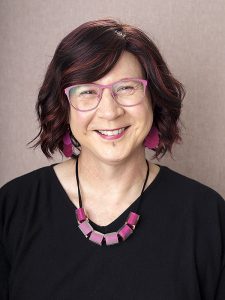 Where do you work and what do you do?
Where do you work and what do you do?
I’m Chief Innovation Officer at Wattwatchers. I’m responsible for the design and delivery of our hardware, firmware, infrastructure, APIs and apps.
How did you get into the job?
I came to Wattwatchers after launching local energy trading startup Nexergy. Nexergy was founded after a decision to focus my efforts in the energy sector having completed my Masters of Sustainable Practice at RMIT. This was part of a longer-term career trajectory to work with for-purpose organisations
Why renewable energy?
This is the industry where my interests in behaviour-change, technology and sustainability intersect. When I was working at WWF-Australia, I read a report that stated climate change has the potential to wipe out any advances we may achieve in social justice and advancement, creating conflict and adversely affecting those nations and peoples who are least able to affect the changes needed to avoid it. Since then, I have focused my efforts on creating a more sustainable world, with an emphasis on energy, as this is a ‘big emitter’ industry.
How do you think the renewable energy sector is positioned to realise the IWD’s theme for the year: “Embrace equity” What progress would you like to see?
As a small example of how change can happen: at Wattwatchers, we recognised our culture, HR policies, and the like were not aligned with our desire to create an inclusive, diverse company. Aspects of our business lacked consideration of the needs, interests and requirements of women, transgender folks, and other minorities. We actively responded to this by rewriting our policies and addressing ‘blokey bloke’ cultural references within our team, as a start. It remains a journey that we’re on, not a destination. But this is critical to shift the needle towards a more inclusive industry.
What do you wish you were told when you first started out in your career?
If I’d been told, I may not have jumped in! But just knowing that it was going to require a huge degree of patience and perseverance to effect change would have been beneficial. So, the advice would be to “push hard, innovate, but expect headwinds”.
HEATHER BONE
Director of ESG, Team Global Express
“Always work with people you admire and respect”
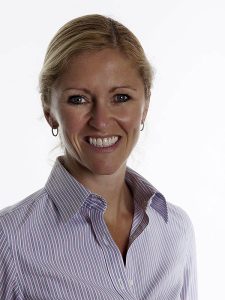 Where do you work and what do you do?
Where do you work and what do you do?
I am the Director of ESG for Team Global Express. We are one of Australia’s largest transport and logistics providers so my main focus is on decarbonising our very large fleet of trucks, vans, planes, ships, and ancillary equipment.
Why renewable energy?
Transport is responsible for about 17% of Australia’s emissions and so finding renewable and alternative sources of energy is critical. In addition, our customers are demanding that we make a change.
Tell us about the challenges you have faced along the way
It is really challenging to change an industry which has been so dependent upon fossil fuels for 150 years. Finding new ways to be more efficient as well as lowering our emissions in a market that has extremely low margins means that every drop of fuel counts – and every skerrick of energy is costly. Our customers want their freight yesterday and they are not necessarily prepared to pay for a low carbon solution.
How do you think the renewable energy sector is positioned to realise the IWD’s theme for the year: “Embrace equity”? What progress would you like to see?
I think that a lot of women feel very strongly about renewable sources of energy and are prepared to go to battle for it. I’d like to see more of our younger female engineers given the opportunity to be heard above the status quo – if we don’t start thinking outside the box and being creative then we’re not likely to decarbonise our planet in the time we need to.
What do you wish you were told when you first started out in your career?
Don’t sweat the small things and make sure you always work with people you admire and respect. Don’t waste your time stressing about whether you agree with the end result because it’s not likely to be personal – focus on how you’re going to get there instead.
AMY PHILBROOK
Strategy Lead for Clean Fuels, ATCO
“Leaders need to make sure female staff are getting paid the same as the males”
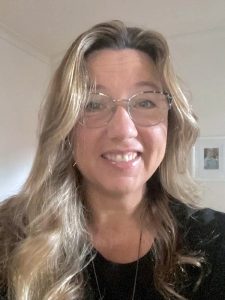 Where do you work and what do you do?
Where do you work and what do you do?
I work for ATCO and am the Strategy Lead for Clean Fuels.
How did you get into the job?
My interest in renewable fuels stemmed from my time at the Australian National University where I was part of a team looking at low carbon biofuels and hydrogen storage molecules. I had the pleasure of working at ARENA for a number of years managing the bioenergy portfolio and working in the hydrogen team.
Why is renewable energy important to your work?
I was raised by environmental activists. I went to no nuke rallies and green peace marches with my dad. He dedicated a big part of his lifeto saving the planet before the threat of global warming. Now I have a daughter – and that is my reason for almost everything – including my work in renewable energy.
Tell us about the challenges you have faced along the way
Work – life balance is impossible to get exactly right. When my daughter was young it was difficult to manage work with caring for her – especially when she was home sick from school / daycare. Homeschooling during COVID did my head in massively. It was my mum’s tribe that got me through it. Man it was tough. I am an engineer with a PhD in chemistry. these are male dominated fields. That has had its challenges in terms of fitting in sometimes. I remember I was working as an engineer in New Jersey and my boss said he didn’t invite me out to dinner because the team went to a strip club:) We all have stories like this. But it’s not all bad. I have been fortunate to work with amazing men and women – in leadership and team roles.
How do you think the renewable energy sector is positioned to realise the IWD’s theme for the year: “Embrace equity”? What progress would you like to see?
I think there are easy starting points. Leaders need to make sure female staff are getting paid the same as the males. We know that is not the case – but this is an easy fix. Just go check:) Support women who have young children – don’t make them feel lousy if they have to miss work to take care of a sick child.
What do you wish you were told when you first started out in your career?
Don’t be so hard on yourself. you are going to make mistakes – you are going to have bad days. You are going to feel like you aren’t quite making it at work and you aren’t quite making it as a mum. Sometimes the family-life balance is hard and you just have to forgive yourself for not getting it exactly right.
BRIDGETTE CARTER
Project Director – Advanced Steel Manufacturing Precinct (ASMaP), BlueScope Steel
“The sector is still relatively young … and provides a multitude of opportunities to embrace best practice programs”
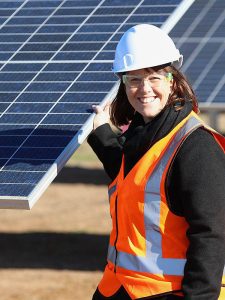 Where do you work and what do you do?
Where do you work and what do you do?
I work at BlueScope Steel’s Port Kembla Steelworks (Wollongong, NSW). I’ve recently shifted into a new role as Project Director – Advanced Steel Manufacturing Precinct. It’s an exciting project aimed at modernising our Plate Mill and partnering with a wind tower fabricator to supply locally fabricated towers to local Wind Farms.
Why renewable energy?
It was a natural progression and melding of two passions – I fell in love with “energy” – the complexity and the challenges and I care deeply about making a difference to the planet. How to equitably transition the energy system to a low carbon future is a wicked problem that renewable energy plays a vital role in solving.
Tell us about the challenges you have faced along the way
As a young female Engineer, the very early years of my career (prior to BlueScope) were extremely challenging. Sexism and sexual harassment were unfortunately way too common, and you needed to grow a very thick skin to survive. Industry has made significant progress in providing inclusive workplaces over the last 20+ years that was very much needed and long overdue.
Another personal challenge has been learning how to switch off and gain more balance in my life. I’m passionate about what I do, and energy is forever in the news and hard to escape so learning ways to switch off.
How do you think the renewable energy sector is positioned to realise the IWD’s theme for the year: “Embrace equity”? What progress would you like to see?
I think the renewable energy sector is well placed to embrace equity. The sector is still relatively young and there is significant investment and activity in this sector that provides a multitude of opportunities to embrace best practice programs and initiatives to not only increase female representation across the industry but to embrace and support diversity across female industry participants.
What do you wish you’d been told when you first started out in your career?
Seek out a Mentor and a Sponsor early in your career. I think it would have been extremely helpful in my early career to have a better professional support network in place for advice, support and to access broader networks.
ANNA BOIN
Product Manager, Beyond Zero Emissions (BZE)
“I would like to see wider enthusiasm for a four day working week for all”
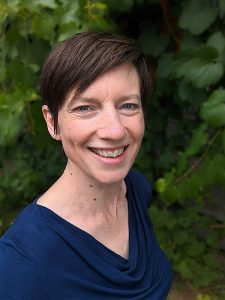 Where do you work and what do you do?
Where do you work and what do you do?
I am a Product Manager at Beyond Zero Emissions.
How did you get into the job?
It’s unusual for me, but I got the job purely through a formal application process. (I usually get my jobs through networking.)
Why renewable energy?
I’ve always had a passion for all aspects of sustainability. Renewable energy combines sustainability with my strong technical skillset. By being at BZE, I particularly like that I am not only working in renewable energy, but also working towards an equitable transition.
Tell us about the challenges you have faced along the way.
Years ago, before BZE, I have faced many of the classic challenges faced by minority groups:
• Receiving so much brilliant career advice that would only work if I was male
• Lack of feminine role models
• Being the odd one out (e.g. If anyone swore, they would turn to me and apologise.)
But at the time, I thought nothing of these challenges. Thanks to the rise in awareness of diversity and inclusion, I can now put them into words. Being able to name them has been very powerful for me.
How do you think the renewable energy sector is positioned to realise the IWD’s theme for the year: “Embrace equity” What progress would you like to see?
The progress I would like to see is wider enthusiasm for a four day working week for all. I believe so many women find it really enriching to have big responsibilities outside work that motivate them to stay really focused during their working hours. I think there should be more encouragement for men to enrich their lives in a similar way.
What do you wish you’d been told when you first started out in your career?
Find the things that you like to do but most other people do NOT like to do. That’s your differentiator.
ALISON CIESLA
Scientia lecturer, School of Photovoltaic and Renewable Energy Engineering at UNSW
“A fresh mind that isn’t trapped by existing norms, is so valuable!”
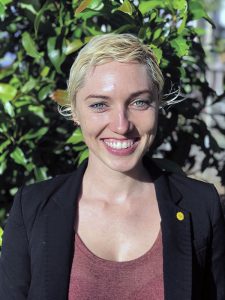 Where do you work and what do you do?
Where do you work and what do you do?
I work at the Australian Centre for Advanced Photovoltaics at UNSW, where our research looks into how we can make solar cells more efficient and durable by investigating and deactivating ‘defects’ in cells. Some defects are ironically activated by sunlight!
How did you get into the job?
My dad, Stuart Wenham, did a lot of pioneering work on solar cells here at UNSW, so you could say that I went into the family business! Although, it didn’t start out that way. I initially wanted to distance myself from him and worked as an electrical buildings consulting engineer. During this time I would hear my contagiously enthusiastic father talk about all the exciting developments happening in solar, while simultaneously seeing climate change accelerating. I was drawn to return to UNSW to do a PhD in solar energy where I felt I could make a more positive difference in the world.
Why renewable energy?
Advancing and accelerating uptake of renewable energy is one of the world’s most urgent and critical issues if we are to have any chance of displacing fossil fuels to slow and reverse the warming of our planet. I also love solving engineering challenges and the magic of electricity so it’s a nice harmony of interests for me.
Tell us about the challenges you have faced along the way
I was one of only eight women among ~400 male engineers as an undergraduate! This didn’t bother me so much, (especially since I met my husband there with not much competition, haha!) But, it could be a major deterrent for many young women. Somewhat relatedly, recently taking two lots of maternity leave for my two sons has been very challenging to manage for continuity of research, supervision, collaboration etc.
What do you wish you’d been told when you first started out in your career?
Exactly what I tell my students now: that you are valuable just by being you and showing up. It’s easy to doubt your worth when starting out or when your credibility feels repeatedly questioned as you build your career. But not all value comes from knowing everything or extensive experience. You are your own person that may have different opinions or ideas that can help solve a challenge in a way that may not be otherwise thought of. Diversity, including a fresh mind that isn’t trapped by existing norms, is so valuable!
JANE SEWELL
Interim head of research, Beyond Zero Emissions (BZE)
“We need both women and men with a range of skills and from diverse backgrounds”
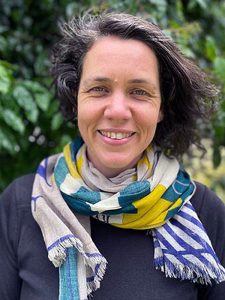 Where do you work and what do you do?
Where do you work and what do you do?
Beyond Zero Emissions (BZE), Interim Head of Research – which means I head up a magnificent research team that help to come up with our positive, ambitious solutions to decarbonise Australia’s economy
How did you get into the job?
I applied for the Research Manager role in the team – and having been in that role for a while, had the opportunity to step up to Head of Research
Why renewable energy?
At BZE we’re advocating for 100% of our energy generation to be from renewables by 2030 – its super ambitious, but if we can power Australia with green electricity we have the potential to cut huge amounts of greenhouse gas emissions in our homes, from our transport and across our industries – it also offers great opportunities for jobs and export revenue, so the question is maybe, why not renewable energy?!
Tell us about the challenges you have faced along the way
I’m relatively new to the sector – so the biggest challenge has been getting up to speed with loads of new content in a short space of time (and learning ALOT of acronyms!). There’s a lot to do to successfully transition to renewable energy and cut emissions, and it needs to happen fast, sometimes that can feel overwhelming – so keeping a positive and optimistic frame of mind can be really hard some days.
How do you think the renewable energy sector is positioned to realise the IWD’s theme for the year: “Embrace equity” What progress would you like to see?
I believe that women represent roughly 30% of the workers in the renewable energy sector so there’s obviously work to be done. It’s important that we understand that not everyone has to be an engineer (which is currently a more male dominated job title) – there are so many skills needed and we need both women and men with a range of skills and from diverse backgrounds to ensure we have a complete skill set so we can meet the speed and scale needed in renewable roll out.
What do you wish you’d been told when you first started out in your career?
I had a colleague who used to say, you just have to ‘begin somewhere’ – which I’ve always liked, there’s room to grow and change, but sometimes you just have to have the courage to start.
ARDEN JARRETT
Marketing Manager – Brand, MGA Thermal
“We have the opportunity to make this industry from the ground up”
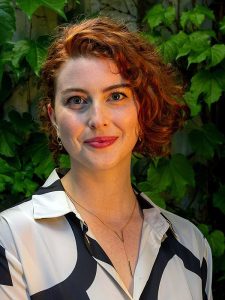 Where do you work and what do you do?
Where do you work and what do you do?
I’m Arden Jarrett, the Marketing Manager – Brand at MGA Thermal. Being an early-stage company, my role is broad and I do anything that encompasses marketing plus more. Including brand positioning, drafting media releases and coordinating with our PR team, building networks with key federal MPs, social media, graphic design, website building, photography, the organisation of stakeholder reference groups and conferences etc.
How did you get into the job?
In 2018, went on an international uni course in Singapore with the University of Newcastle and introduced myself to an entrepreneur and super networker we met there. They recognised my interests and where I was based and put me in touch with Alex Post, MGA Thermal’s CTO and co-founder.
Why renewable energy?
I’ve always been after a career that has an impact, and climate change has been one of my biggest concerns for the last decade. Growing up in Newcastle, there’s a deep history of coal and heavy industry, but there is also a rapidly emerging renewable energy space. After finishing uni, it seemed like the biggest opportunity with the most impact and potential, as well as just being a very exciting sector to be!
Tell us about the challenges you have faced along the way
The biggest challenge was the first couple of years with MGA Thermal when I was the only woman on the team – we now have 10!
Everyone on the team was and is lovely, however when you provide the only alternate perspective in the room, it becomes tiring to always speak up and insist on being heard. It can be easy in that situation to stop speaking your ideas and opinions. This is true of any factor of diversity, whether you are the only woman or ethnic minority or disabled person in the room (just to name a few).
We are now above average for diversity in our industry and continue to value all types of diversity.
How do you think the renewable energy sector is positioned to realise the IWD’s theme for the year: “Embrace equity” What progress would you like to see?
Renewable energy is an exciting, growing industry. We have the opportunity to make this industry from the ground up. Let’s make it inclusive and representative.
What do you wish you were told when you first started out in your career?
I was given lots of advice, but I think the hard part is believing in yourself. It would be nice if when I started, I had more confidence in my knowledge and decisions. Just make the decision and if it’s not the best outcome, learn from it, be curious as to why, and don’t be too harsh on yourself.
LILY DEMPSTER
CEO and founder, One Small Step
“Equity to me is about equality of opportunity”
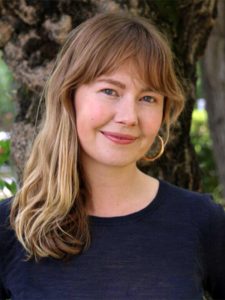 Where do you work and what do you do?
Where do you work and what do you do?
I’m the CEO and founder of One Small Step. We are a profit-for-purpose climate startup. Our main product is a free consumer mobile application that’s helped 70,000 Australians make lifestyle changes that massively reduce carbon emissions, using behavioural science.
How did you get into the job?
I got into the job by working as a climate campaigner. I was very passionate about working on climate change mitigation since I was in early university, and I dedicated my career to it. But when I was working as a campaigner, I realised there was a hugely under-addressed area of climate change mitigation, that was “demand-side climate change mitigation” and specifically behaviour change in high income countries, getting people to change their behaviour to reduce emissions en masse.
Why renewable energy?
Renewable energy is a hugely critical component of global decarbonisation. We urgently need to transition away from fossil fuels. At this point, this is so bleedingly obvious I think it’s better to just focus on the how rather than the why.
Tell us about the challenges you have faced along the way
Well, one of the biggest ones was not having a coding background. So, finding the right people to work with who could bring the app and the software to life was the first major hurdle. I was lucky enough to find some really excellent, very experienced tech advisors along the way and that really shifted things.
How do you think the renewable energy sector is positioned to realise the IWD’s theme for the year: “Embrace equity” What progress would you like to see?
Equity to me is about equality of opportunity. And you know one of the key aspects of the energy transition that is a concern is that the switch to renewables could potentially further entrench lower socioeconomic people in energy poverty. For example, if you own your home you can make modifications to the home; you can retrofit it, you can install solar panels, batteries, you can electrify all of your appliances, and this saves you a lot of money. But renters don’t have the same level of control over their sources of energy. It’d be great to see voices within the renewable energy sector working more on this accessibility issue in the context of affordable housing, minimum residential building standards and tenants’ rights.
What do you wish you were told when you first started out in your career?
I guess that you learn best by doing, not by taking advice from others. There does tend to be a fairly paternalistic approach to giving support to female founders, and that looks like lots of advice, programs, incubators, courses, fellowships etc. on how to be better entrepreneurs, and to have more confidence. And so I think what I wish I was told early in my career – was just to back myself first rather than seeking lots of generic advice.
ANGELA RILEY
Wholesale Markets Manager, Goldwind Australia
“Embracing equity is fundamental to achieving equality”
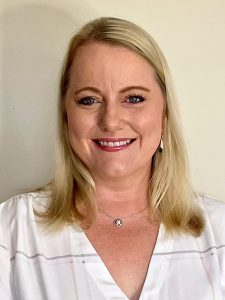 Where do you work and what do you do?
Where do you work and what do you do?
My role at Goldwind Australia is the Wholesale Markets Manager, where I’m responsible for developing and managing the revenue and market strategies for our portfolio of renewable energy assets. This includes negotiating PPA’s and overseeing operations in the National Electricity Market.
How did you get into the job?
My early career included roles in IT and project management where I worked for clients largely in the energy and utilities sector. That’s where I grew my knowledge and contacts in the energy industry, which led me to taking on roles in energy and environmental market trading, contracting, gas markets, and energy retail. In 2021, I decided to make a move into the high-growth area of the industry, taking up my role with renewable energy provider Goldwind.
Why renewable energy?
Renewable energy and storage are critical components to transitioning away from fossil fuels and reaching global emission reduction targets. Whilst there are many challenges to overcome to realise this goal, it’s exciting to be actively contributing to the solution and working with a broad range of people, ideas and technologies along the way.
Tell us about the challenges you have faced along the way
I’ve been very fortunate in my career to work with many experienced industry colleagues, who have been generous in sharing their insights with me. Earlier in my career, there were far fewer female leaders in senior positions, so there were less female role models to relate to or mentors to turn to for guidance and support. It’s slowly improving, but it’s not uncommon to be the only female in the room or at the table.
How do you think the renewable energy sector is positioned to realise the IWD’s theme for the year: “Embrace equity”? What progress would you like to see?
I believe embracing equity is essential for the renewable energy industry given the massive task facing the industry and the challenges in retaining the skilled resources needed to achieve its ambitious goals. Embracing equity is fundamental to achieving equality and realising a diverse and inclusive workplace. I’d like to see organisations continue to challenge their traditional views on merit, to one in which the benefits of having a more diverse team has a greater focus in the merit criteria.
What do you wish you were told when you first started out in your career?
Growth requires going outside of your comfort zone. Put up your hand for new roles and projects whenever opportunities arise. Build your network of contacts early, ask lots of questions, and find a mentor you trust and respect. Finally, learn as much as you can from experienced colleagues, but don’t be afraid to challenge the status quo by looking for new and different ways of doing things.
JACKIE McKEON
Program Director, Business Renewables Centre Australia (BRC-A)
“The industry is becoming more and more aware of the importance of responsible development”
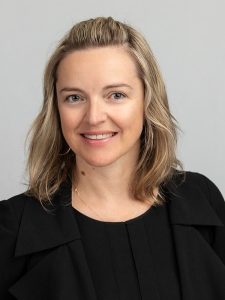 Where do you work and what do you do?
Where do you work and what do you do?
I’m Program Director at the Business Renewables Centre Australia (BRC-A) – an initiative of Climate-KIC, ISF and WWF-Australia. The initiative was started with seed-funding from ARENA and the NSW, Vic and Qld State Governments to provide training, connection and support to corporate organisations seeking to procure renewable electricity via Power Purchase Agreement (PPA).
How did you get into the job?
I joined WWF-Australia as Renewable Energy Manager in 2018 and launched the BRC-A together with the team. Prior to this, I was a senior development manager in the property sector (10 years) and completed a specialised MBA in order to transition to renewables.
Why renewable energy?
For me, it’s because renewables are solution focused. It’s easy to become heavily weighed down by negativity around climate change, whereas renewables make a significant and positive difference to the problem. And supporting renewable energy procurement by corporate and government organisations is win-win: this means meeting the needs of companies seeking to achieve net zero and 100% renewables goals, while at the same time supporting the development of new renewable energy projects to the gird.
Tell us about the challenges you have faced along the way
We’ve had to adjust our business model in order to continue to support industry. But we are finding industry highly responsive, and the market for renewable electricity procurement continues to grow each year.
How do you think the renewable energy sector is positioned to realise the IWD’s theme for the year: “Embrace equity” What progress would you like to see?
The industry is becoming more and more aware of the importance of responsible development. In particular, corporate renewable energy buyers and developers are realising the opportunity for social and environmental project co-benefits that can be delivered to host communities. Sharing project benefits with communities, especially in regional areas, is emerging as a major focus and we have seen some great examples of best practice in this area emerge across industry. More companies want to contract with developers and retailers (and all of the supply chain for that matter) who share their stated corporate values. This includes gender equity, as well as the fight against modern slavery, community stewardship and more.
What do you wish you were told when you first started out in your career?
I’ve come full circle, starting out in environmental impact assessment, moving to planning approvals and development, then into renewables. Finding a role that reflects your values is key to happiness and success. Also, don’t be afraid to reach out to people who you admire, irrespective of ages, role or gender – there is a lot to be learned.
LIKE THIS STORY? SIGN UP TO OUR NEWSLETTER

ARENA